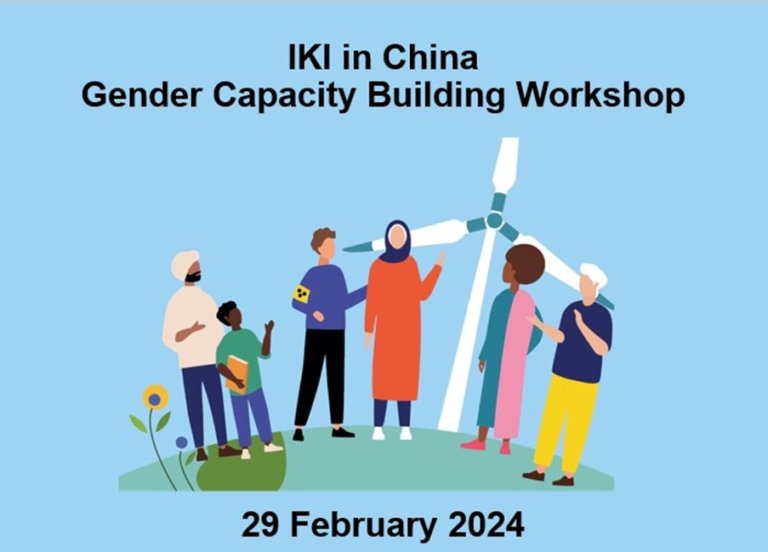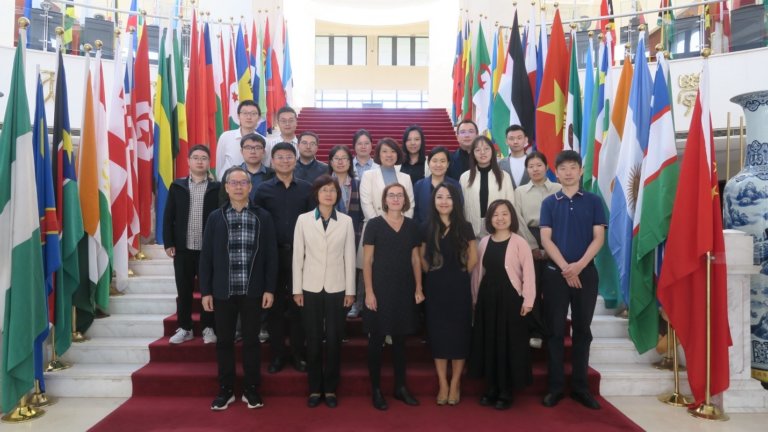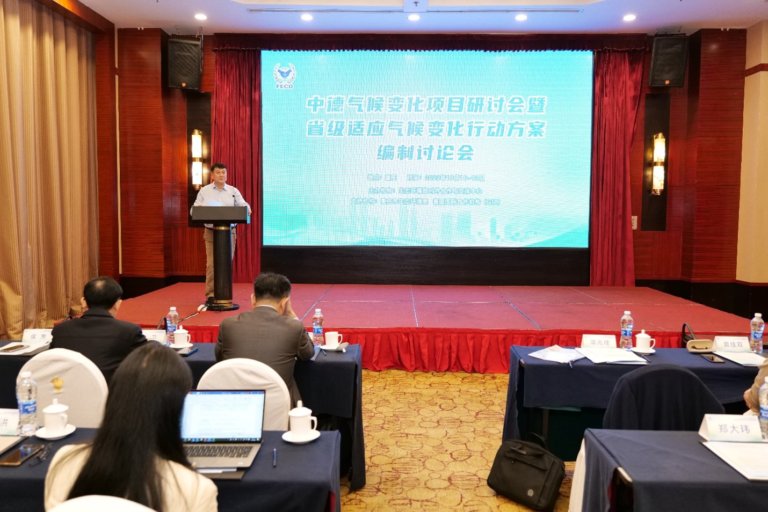Right after COP28, as part of the International Climate Initiative (IKI) of the German Federal Government, GIZ East Asia hosted a “Networking Workshop for Climate & Environment Cooperation with China” on 14 December 2023. The workshop brought together different actors of the climate and environment community in Beijing to foster networking and exchange.
Ms Elena Finckh, Energy Focal Point of the Economic Division at the German Embassy, kicked off the workshop with opening remarks. She mentioned that IKI has approved more than 950 projects with a total funding volume of almost EUR 6 billion since 2008. Referring to the increasing dialogue and expert networking between China and Germany, she noted that GIZ is playing an essential role in addressing climate-related challenges.
Mr Paul Recknagel, Project Director of the Sino-German Cooperation on Climate Change – NDC Implementation project from GIZ East Asia, moderated the first part of the event which focused on topical exchange on major outcomes of COP28 as well as their impact on China. By highlighting the high presence of female participants, he underscored the significance of fostering gender equality, a major IKI objective.

In the first presentation, Dr LIU Zhe, Director of Research, Data, & Impact from World Resources Institute China, reiterated that climate action must accelerate rapidly. Alarmingly, Systems Change Lab’s report on the State of Climate Action 2023 found that only one of the 42 indicators is on track to reach its 2030 target, indicating that global progress across sectors is not happening at the pace and scale necessary to limit warming to 1.5 °C. She delved into specific sectors to point out the pace of action required, including reducing the annual rate of deforestation 4 times faster, expanding public transport infrastructure 6 times faster, phasing out coal in electricity generation 7 times faster, and decarbonizing cement production more than 10 times faster.

After Dr LIU, Prof Dr Michiel Schaeffer of Climate Analytics introduced the state of play heading into COP28, an overview of the context of the negotiations, and key takeaways from the conference. He referred to the need to peak global emissions before 2025 and reduce emissions by 43 % until 2030 and by 60 % until 2035 compared to 2019 levels, in line with IPCC scientific recommendations. Yet, challenges are persisting, notably in the areas of multilateral trust and financial commitments.
Following the discussions, Dr Niels Thevs, Project Director of the Sino-German Environment Partnership from GIZ East Asia, emphasized the importance of wetlands in providing and regulating ecosystem services, biodiversity conservation, and achieving climate change mitigation. He raised that NGOs have been advocating for wetland and mire protection in Germany for decades and mentioned the Greifswald Mire Center as a successful example of putting wetland restoration programs on the agenda of the UNFCCC.

Subsequently, Dr CHENG Chen, Program Lead of Shanshui Conservation Center, highlighted that a strategy to synergise biodiversity conservation and climate change actions is needed. By elaborating on cases of different provinces in China, she addressed community-based biodiversity conservation in the local context, urban ecological restoration and citizen science, as well as the data-based Nature Watch Strategy to promote the mainstreaming of biodiversity.

Mr Martin Hofmann, Head of Climate, Energy, Environment, Biodiversity, and Mobility from GIZ East Asia, raised the attention to developments in the cooperation framework in 2023, singling out the 7th German-Chinese intergovernmental consultations and the German government’s China Strategy.
The second part of the workshop provided a forum for exchange to enhance mutual understanding of participating institutions’ current and future portfolios of engagement in the areas of climate change and environmental protection in China. To this end, the climate and environment communities discussed current activities and future focus areas in the fields of climate mitigation, adaptation, and environment.



